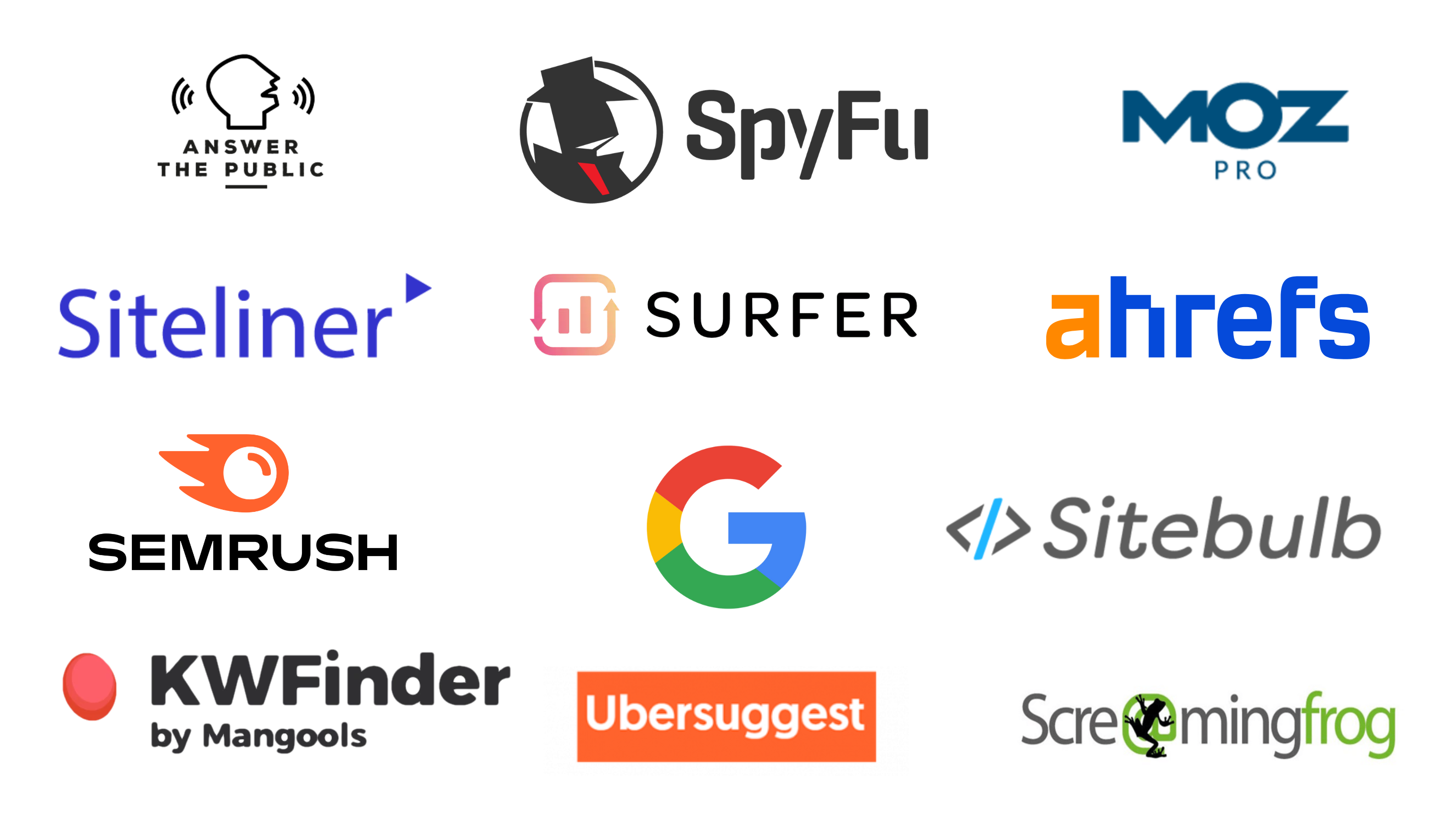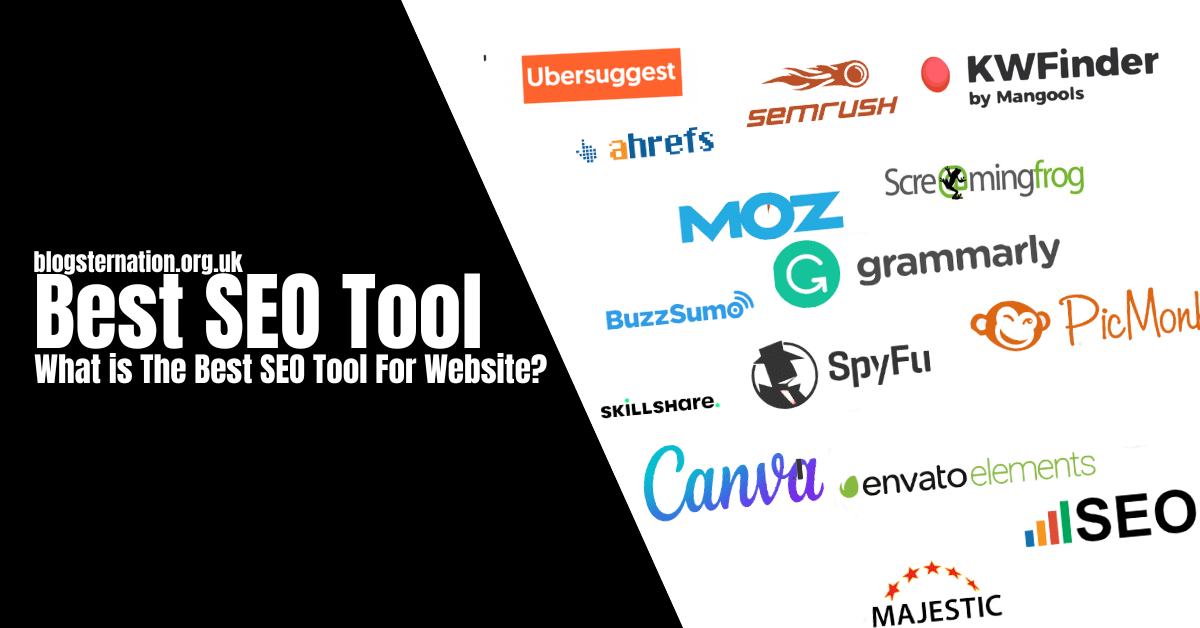What is The Best SEO Tool For Website?
Looking for the best SEO tool for a website? Discover the top SEO tools for keyword research, backlink analysis, technical SEO, and content optimization. Improve your rankings and boost traffic with our comprehensive guide.
Introduction
Search engine optimization (SEO) is a crucial aspect of digital marketing. Without the right SEO tools, optimizing a website can be time-consuming and ineffective. The best SEO tool for a website helps with keyword research, backlink analysis, technical SEO, and content optimization. These tools improve search rankings and increase organic traffic. This guide will explore the top SEO tools available, their features, and how they can benefit your website.
What Makes an SEO Tool the Best?
Choosing the best SEO tool for a website depends on several factors. A good tool should provide accurate keyword research, competitor analysis, and technical SEO audits. It should also have an easy-to-use interface, comprehensive reporting, and integration with other digital marketing tools. Additionally, the best SEO tools help users identify and fix issues that might affect website rankings. Factors like pricing, scalability, and real-time updates are also essential.
Best All-in-One SEO Tools
Several SEO tools offer an all-in-one solution, covering keyword research, technical audits, rank tracking, and competitor analysis. SEMrush is one of the most popular SEO tools, offering an extensive database for keyword research and competitive analysis. Ahrefs is another leading SEO tool with a powerful backlink analysis feature. Moz Pro provides a well-rounded SEO suite, while Serpstat offers budget-friendly SEO solutions.
Keyword Research Tools
Keyword research is essential for any successful SEO strategy. The best SEO tool for a website should provide accurate search volume, competition level, and keyword difficulty. Google Keyword Planner is a free tool for finding relevant keywords, while SEMrush and Ahrefs offer advanced keyword research features. Ubersuggest is another great option for beginners.
Technical SEO Tools
Technical SEO focuses on website performance, crawling, and indexing. Google Search Console is a must-have tool for monitoring website health, indexing issues, and search performance. Screaming Frog SEO Spider is an excellent tool for site audits, helping identify broken links, duplicate content, and other SEO issues. Sitebulb is another robust site auditing tool that provides in-depth insights.
Rank Tracking Tools
Tracking keyword rankings is crucial for understanding the effectiveness of SEO strategies. Rank tracking tools monitor search engine rankings and provide insights into fluctuations. SE Ranking’s Rank Tracker is one of the best tools for this purpose. Ahrefs and SEMrush also offer keyword tracking with historical data and competitor comparisons.
Backlink Analysis Tools
Backlinks play a significant role in SEO rankings. The best SEO tool for a website should provide a detailed backlink profile, identify toxic links, and suggest link-building opportunities. Ahrefs is widely regarded as the best backlink analysis tool. Majestic offers unique Trust Flow and Citation Flow metrics, while Linkody provides automatic backlink tracking and reporting.

Content Optimization Tools
SEO-friendly content is key to higher rankings. SurferSEO is one of the best tools for optimizing content based on top-ranking pages. Clearscope uses AI to suggest keywords and improve readability. MarketMuse provides content briefs and AI-driven recommendations to enhance SEO performance. These tools help create high-quality, optimized content that ranks well in search engines.
Local SEO Tools
Local SEO is essential for businesses targeting specific geographic areas. Google My Business is a free tool that helps businesses manage their online presence in local searches. BrightLocal offers in-depth local SEO reports and competitor tracking. Whitespark helps businesses build citations and improve local rankings. These tools are crucial for improving visibility in local search results.
SEO Reporting and Analytics Tools
SEO reporting tools provide insights into traffic, rankings, and website performance. Google Analytics is the most widely used analytics tool, offering detailed data on user behavior. Google Data Studio allows users to create custom SEO reports. SEMrush and Ahrefs also provide comprehensive reporting features for tracking SEO progress.
Free vs. Paid SEO Tools
Many SEO tools offer free and paid versions. Google Search Console, Google Keyword Planner, and Ubersuggest provide valuable insights without cost. However, premium tools like SEMrush, Ahrefs, and Moz Pro offer advanced features and more comprehensive data. Investing in a paid SEO tool can significantly improve website performance and rankings.

Best SEO Tools for Beginners
For beginners, using an easy-to-understand SEO tool is essential. Ubersuggest is a beginner-friendly tool that provides keyword research, backlink analysis, and site audits. Moz Pro offers a user-friendly interface with simple SEO recommendations. Google Search Console is another must-have tool for those new to SEO.
Best SEO Tools for Advanced Users
Advanced users require more sophisticated tools with in-depth data analysis. Ahrefs provides detailed backlink profiles and keyword insights. SEMrush offers powerful competitor analysis and PPC insights. Screaming Frog SEO Spider is ideal for advanced technical SEO audits. These tools help experienced SEO professionals refine their strategies.
How to Choose the Right SEO Tool
Choosing the best SEO tool for a website depends on business goals, budget, and required features. Small businesses may benefit from affordable tools like Ubersuggest or Serpstat, while enterprises may need SEMrush or Ahrefs. It is essential to test different tools and find the one that best fits your needs.
The Future of SEO Tools
SEO tools continue to evolve with advancements in AI and machine learning. Google’s algorithm updates influence how SEO tools function. AI-powered tools like Clearscope and SurferSEO help improve content optimization. The future of SEO tools will likely focus on automation, better user experience, and improved data accuracy.

Conclusion
The best SEO tool for a website depends on specific needs. SEMrush, Ahrefs, Moz Pro, and Ubersuggest are among the top choices. Free tools like Google Search Console and Keyword Planner provide valuable insights. Investing in the right SEO tool can significantly improve website rankings, traffic, and overall performance.








